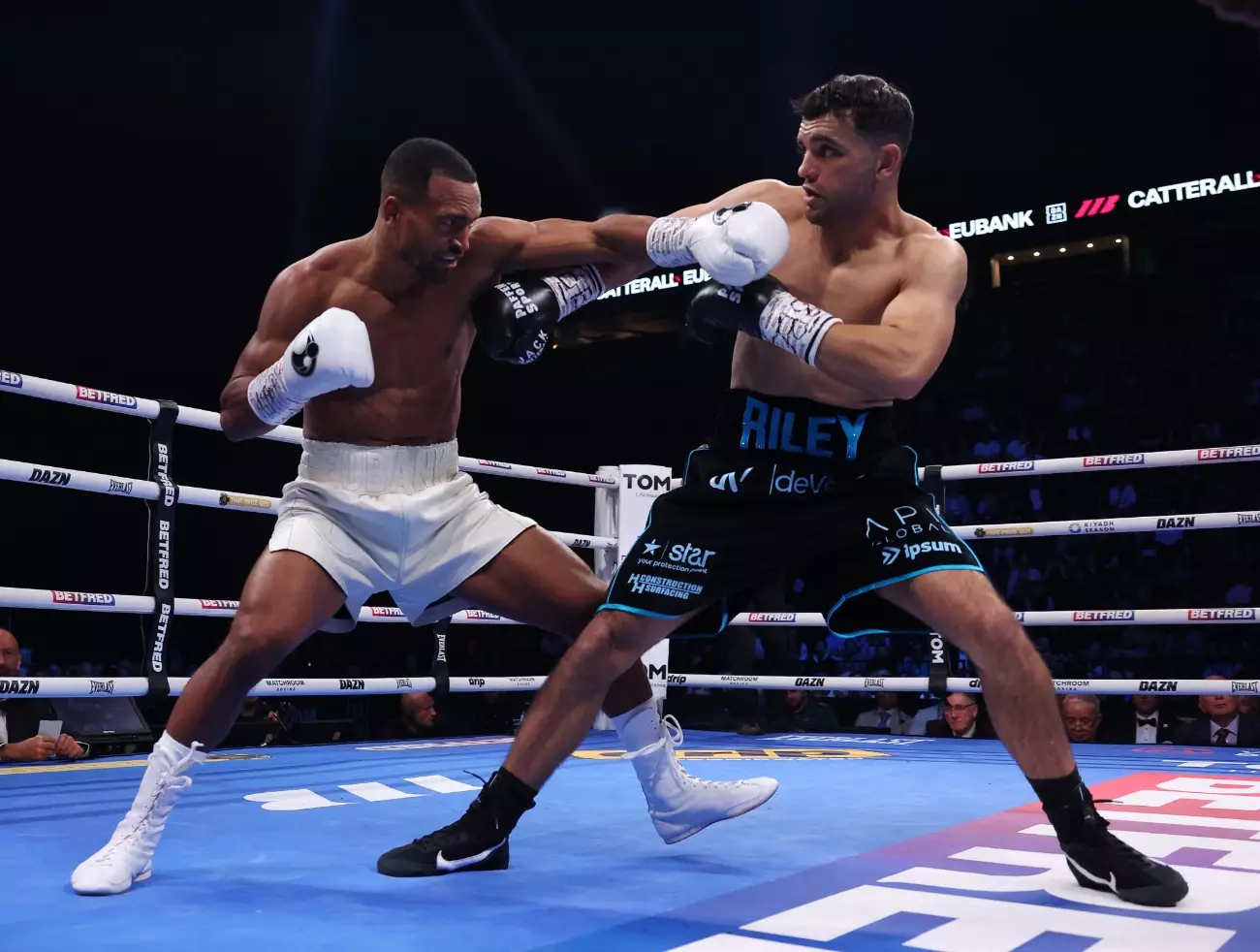Jack Catterall’s recent victory over Harlem Eubank encapsulates the harsh realities many fighters face in the brutal world of professional boxing. The match, held at Manchester Arena, was an intense display of grit, although not without shortcomings. Catterall, with a career record of 31 wins and 2 losses, stepped into the ring against an undefeated Eubank, showcasing his resilience amid adversity. While the fight was marred by a cut resulting from an accidental clash of heads, Catterall’s ability to maintain composure and emerge victorious speaks volumes about his mental toughness.
This fight underscores the unpredictable nature of boxing — a sport where the outcomes are often determined not solely by skill but also by unforeseen circumstances. Catterall’s performance, especially at his debut at 147 pounds, revealed both the physical toll and tactical adjustments he had to endure. The fight wasn’t a spectacle of power or finesse but rather a test of endurance, strategic patience, and resolve. The fact that the contest was stopped prematurely due to a cut leaves fans and critics questioning if the true potential of this match had been fully realized. It was a reminder that in boxing, sometimes victory comes in unexpected packages, and resilience often outweighs technical brilliance.
Criticism and Reflection: An Honest Appraisal of Performance
Analyzing the fight from a critical perspective, Catterall’s performance was underwhelming. He appeared slower, weaker, and less dynamic than expected, especially considering his previous achievements. The lack of power on his punches and the frequent retreats when Eubank pressed forward revealed vulnerabilities that could be exploited by more aggressive opponents. His tendency to engage in defensive, cautious tactics bordered on discomfort, making the fight dull and predictable — a far cry from the action-packed bouts fans hope for.
Furthermore, Eubank’s strategy of clinging, grabbing, and wrestling left much to be desired in terms of technical skill. Instead of leveraging his natural power advantage, he resorted to a frustrating and often ineffective approach characterized by clinching. The two fighters falling to the canvas during clinches added to the chaos, disrupting the rhythm and diminishing the excitement. Such tactics and the overall slow pace cast a shadow over what could have been a showcase of skill and determination.
Yet, Catterall’s statement about feeling frustrated and down after back-to-back defeats sheds light on his genuine hunger to succeed. It’s evident that beneath the surface lies a fighter intent on redemption. The desire for a rematch echoes a resilient mindset, urging the sport’s figures to recognize his fighting spirit rather than dismiss his shortcomings. It’s a testament to his mental fortitude that he calls for a second chance, believing he can demonstrate his true capability when given the opportunity.
Strategic Future and the Quest for Glory
Promoter Eddie Hearn’s strategic move to shift Catterall’s focus towards a potential world title shot reveals both ambition and a calculated approach to his fighter’s career. The choice to pursue the IBF title, now vacated, indicates confidence that Catterall can climb the ranks against fringe-level contenders like Lewis Crocker and Paddy Donovan. Although these opponents are not top-tier, a victory over them could serve as a stepping stone for Catterall to regain relevance and credibility.
Nevertheless, dismissing a high-caliber contender such as the WBO champion Brian Norman Jr. suggests a cautious and realistic assessment of Catterall’s current caliber. Norman’s power could pose a dangerous threat, so avoiding unnecessary risks makes strategic sense at this stage. However, it also highlights a broader challenge within boxing: the delicate balance between maintaining momentum and risking injury against formidable opponents.
Catterall’s journey encapsulates the broader narrative of fighters striving against circumstances beyond their control, seeking redemption and recognition through perseverance. While critics may lambaste his recent performance as underwhelming, it’s crucial to understand that boxing is as much about resilience as it is about technique. If Catterall continues to refine his skills, capitalize on opportunities, and maintain his fighting spirit, his story is far from over. It’s a testament to the fact that in the world of boxing, true champions are defined not just by victories but by their ability to rise after setbacks and push forward with unwavering resolve.

